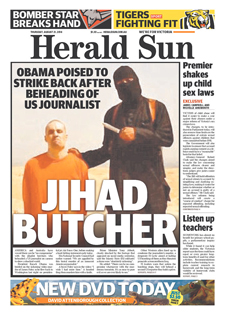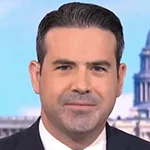Most people would agree that heavy-handed censorship by a governing entity is anti-democratic. But what about self-censorship, which is now in the news because of the horrific beheading by ISIS of journalist James Wright Foley?
 Should gruesome photos of people being slaughtered be banned from news outlets? Will publishing or televising macabre events serve a public good by providing a history lesson of hideous examples that might be prevented in the future if evil is stamped out before it grows too powerful?
Should gruesome photos of people being slaughtered be banned from news outlets? Will publishing or televising macabre events serve a public good by providing a history lesson of hideous examples that might be prevented in the future if evil is stamped out before it grows too powerful?
Those are the questions that arise each day and must be answered by those empowered to decide what news should be made available and what news isn’t newsworthy.
As anyone who has worked as a journalist in a newsroom knows, there are many newsworthy stories that are spiked, some for lack of space and others because editors didn’t like the way they were reported.
The choosing of what is important news and what is unimportant news (as is the decision of what Op-Eds editors of this Web site accept) is a form of editorial self-censorship.
The debate over protecting the public from unsavory happenings seems to be in our protectors DNA. Decades ago, a harmless type of show business – burlesque – was abolished because it was considered to offend moralistic sensibilities. Hollywood enacted its own censorship rules that put blinders on scenes that offended its puritanical gatekeepers.
For years self-appointed censors have been targeting comic books, TV shows and movies for being overly violent. More recently the political correctness police have been aghast at the language used by rappers.
Perhaps the most famous governmental censorship case not involving so-called classified information during our life-time occurred in the 1960s, when Lenny Bruce, a well-known stand-up comic, was arrested and convicted for obscenity in his routine, which ended his career and some people feel led to his death. (Bruce was pardoned in 2003 by New York Governor George Pataki, too late to help the comedian.)
Which brings us back to the ISIS beheading images. Some people feel that they are too ghastly and should not have been made public.
But also horrific are the pictures of Holocaust victims, which are used as a teaching lesson about evil if it is not stopped at its beginning.
The ISIS beheading photos are evidence of today’s evil and should not be censored. Censoring them does a disservice to every American soldier who perished while trying to erase an evil from again reaching our shores.
Journalists should not self-censor gruesome news. Their job is to report and not let their personal sensibilities affect reporting.
Arthur Solomon, a former journalist, was a senior VP/senior counselor at Burson-Marsteller, and was responsible for restructuring, managing and playing key roles on national and international sports and non-sports programs. He now is a frequent contributor to public relations and sports business publications, consults on public relations projects and is on the Seoul Peace Prize nominating committee. He can be reached at [email protected].


 Maggie Moran, who is well-connected in New Jersey and New York Democratic politics, has established Moxie Strategies in Asbury Park, NJ.
Maggie Moran, who is well-connected in New Jersey and New York Democratic politics, has established Moxie Strategies in Asbury Park, NJ. Husch Blackwell Strategies has added FleishmanHillard alum Michael Slatin as a principal in its public affairs group.
Husch Blackwell Strategies has added FleishmanHillard alum Michael Slatin as a principal in its public affairs group. Rory Cooper, a veteran Republican operative and policy specialist, has joined Teneo’s Washington office as senior managing director in its strategy & communications practice.
Rory Cooper, a veteran Republican operative and policy specialist, has joined Teneo’s Washington office as senior managing director in its strategy & communications practice. Brian Fallon, who served as national press secretary for Hillary Clinton’s 2016 presidential run, is signing on next month as Vice President’s Kamala Harris’ campaign communications director.
Brian Fallon, who served as national press secretary for Hillary Clinton’s 2016 presidential run, is signing on next month as Vice President’s Kamala Harris’ campaign communications director. TikTok is nothing more than a Chinese propaganda tool that poses “a grave threat to America’s national security and, in particular, impressionable children and young adults,” say two Congressmen who want the platform registered as a foreign agent.
TikTok is nothing more than a Chinese propaganda tool that poses “a grave threat to America’s national security and, in particular, impressionable children and young adults,” say two Congressmen who want the platform registered as a foreign agent.


 Have a comment? Send it to
Have a comment? Send it to 
No comments have been submitted for this story yet.